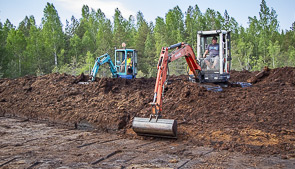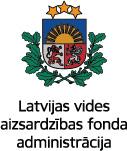Sustainable and responsible management of degraded peatlands enhance the capacity of governments, businesses and civil society in decision and policy-making processes regarding alternative approaches for degraded peatland re-use.
The European Union’s funding instrument for the environment and climate action programme LIFE Climate Action thematic section Climate change Mitigation
2015. IX >>> 2019. VIII
Sustainable and responsible management and re-use of degraded peatlands in Latvia
LIFE14 CCM/LV/001103 - "LIFE REstore"
CONTACT DETAILS
Project Manager: Ms. Ieva Saleniece
E-mail: ieva.saleniece@daba.gov.lv
Phone: +371 20142828
Project Public Relation Coordinator: Ms. Anda Zālmane
E-mail: anda.zalmane@daba.gov.lv
Phone: +375 26539348
Project coordinator: Ms. Ieva Bukovska
E-mail: ieva.bukovska@daba.gov.lv
Phone: +371 20333119
ISSUES ADDRESSED
Climate change Mitigation - Carbon sequestration, Land-use and Planning - Sensitive and protected areas management, Greenhouse gas accounting‚ decision making support‚ wetland‚ management plan‚ restoration measure
BACKGROUND
Peatland drainage was carried out in Latvia throughout the Soviet era, up to the 1990s. This contributed to the degradation of natural ecosystems and resulted in greenhouse gas (GHG) emissions from areas that previously stored large amounts of carbon (carbon sinks). According to unofficial studies, in 1991, there were about 55 000 ha of peat extraction fields in various stages of exploitation in Latvia. Currently, peat extraction licences are issued for about 25 000 ha, with areas where activities have not been carried out for at least 20 years forming an additional 20 000 ha. A general lowering of the water table prevents the natural re-vegetation of these areas. Appropriate, sustainable, and integrated management of these peatlands is therefore required to protect ecosystem services and to reduce further GHG emissions.
PROJECT MAIN TASKS (ACTIVITIES)
-
To develop a methodology to quantify GHG emissions from managed wetlands in Latvia, in accordance with IPCC guidelines for national GHG inventories;
-
To perform an inventory and develop a database for degraded peatlands in Latvia;
-
To develop a decision-support tool for land re-use planning in degraded peatland areas, which achieves an optimal balance between ecological restoration for biodiversity, economic benefits, and GHG emission reductions;
-
To support policymakers, by providing a strategic framework for implementing sustainable re-use of degraded peatlands within the National Peat Strategy.
OUTPUTS
Expected results:
The LIFE REstore project aims to promote sustainable and responsible management of degraded peatlands. This will enhance the capacity of governments, businesses and civil society in decision and policy-making processes regarding alternative approaches for degraded peatland re-use. In particular, the following results are expected:
- Management plan developed for the Natura 2000 area "Lauga Mire Nature Reserve";
- GIS database created, with degraded peatland areas identified through survey;
- Methodology developed for GHG accounting, for key emission source categories in managed wetlands, in accordance with IPCC guidelines;
- Criteria for peatland classification developed;
- The natural capital of degraded peatlands estimated;
- Land re-use and management planning support model developed for the optimal re-use of degraded peatlands;
- Selected land re-use optimisation models developed and management scenarios implemented for peatland re-use in demonstration areas;
- Ecosystem services impact assessment conducted for degraded peatlands;
- Recommendations provided for application of financial and other governmental and municipal tools that are available for implementing land re-use scenarios in degraded peatlands.
It is estimated that the above-mentioned activities will result in CO2 emission reductions of approximately 2 227 metric tonnes per year, and a CO2 storage capacity of 838 metric tonnes per year in Latvia.
|
LEAD PARTNER |
||
|
Baznīcas iela 7, Sigulda, Siguldas novads, Latvija, LV-2150. E-mail: daba@daba.gov.lv Web site: www.daba.gov.lv |
||
|
PARTNERS |
|
REFERENCE |
LIFE14 CCM/LV/001103 |
|
|
DURATION |
01-SEP-2015 to 30-AUG -2019 |
|
|
TOTAL BUDGET |
1,828,318.00 EUR |
|
|
EU CONTRIBUTION |
1,096,990.00 EUR |
|
|
PROJECT LOCATION |
LATVIA: Kurzeme, Latgale, Riga, Pieriga, Vidzeme, Zemgale, Extra-Regio, Associated Latvia |
|
|
ACRONYM |
LIFE REstore |
|
|
WEB SITE |
Site being prepared |






